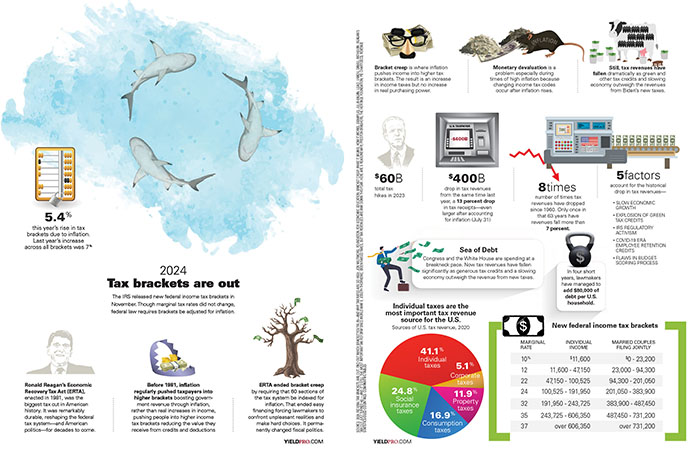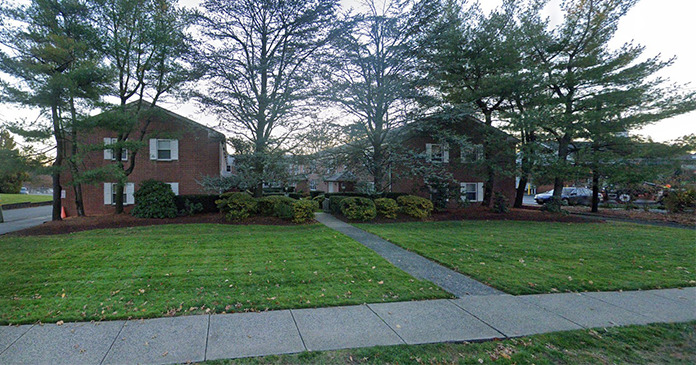“I guess we just got lucky to have a number of projects under construction that started in 2008 and we have projects in our pipeline that we are hoping we will start in 2010,” The Bozzuto Group CEO Tom Bozzuto said in an April interview.
“And that is really fortunate because I’m not sitting here beating my head on the ground because I can’t get financing,” he said of the serendipitous timing of the company’s development pipeline for its own account.
It is in the management arena and third-party construction business that The Bozzuto Group, which is made up of six subsidiary companies, expects to thrive in this current recession, said the CEO, a fan of Winston Churchill, who once said that a pessimist sees the difficulty in every opportunity, while an optimist sees the opportunity in every difficulty.
“In this economic climate, where property values have declined because of the changes in the capital markets, asset managers and property owners are looking for every opportunity to grow the bottom line, because that’s the only way to restore value,” said Bozzuto.
Award rewards
Management, for its owned portfolio and for its clients, will be a major focus for the privately held real estate company for the balance of the year, he said, agreeing that the recognition by the National Association of Home Builders (NAHB) as best property manager of the year for the second time this decade isn’t bad for business. The first time was in 2000, when the apartment industry was bouncing along the rocky bottom and the country was in the depths of another recession.
“We do well in recessions. I guess it’s our time to shine,” said Bozzuto Management Company President Julie Smith. “In a time when a lot of things haven’t felt good, this felt particularly good,” she said of the award. “For the newer people in our organization, it was a validation for them that they were on a winning team,” said Smith, who runs the subsidiary that manages a portfolio of around 27,500 units in some 95 communities in the Mid-Atlantic and Northeast, 30 percent owned and 70 percent fee-managed.
“For the people who have been with the company for many years, it was exceptionally gratifying because they felt like they had played a very big role in getting us to the place where we could be selected for such an award,” said Smith, who joined Bozzuto in 1989 and had worked with Tom Bozzuto and the three other founders of the company when they all worked for Oxford Development Company, which no longer exists.
“This award is the only recognition that we in the industry are able to rely on to measure how well we’re doing in comparison with our peers,” said Bozzuto, whose Greenbelt, Md.-based company has won a raft of local, regional and national awards during its 21-year history. “It benefits us with our customers and our residents. It creates an opportunity for management companies like ours to help our clients resume the growth in value of their properties,” which is accomplished by professional marketing of the properties, improving occupancies to maximize revenues and careful spending, he said.
“We have let our residents know of our selection and they are as pleased to live in a property managed by a property management company of the year as we are to be the ones having the title,” said Bozzuto, who partnered with Richard Mostyn, now Bozzuto Group’s COO; John B. Slidell, who is The Bozzuto Group’s vice chairman and president of Bozzuto Land Company, and the late Bernard Lubcher, to form a company to build and manage apartment homes in 1988, a time when a lot of apartment companies got into financial difficulty and Oxford’s plan to diversify geographically went awry.
Opportunity knocked
“That created an opportunity for the three of us,” Bozzuto recalled recently. “What Oxford was doing made a lot of sense. They just decided to do it all over the country and they lost control and they capitalized their projects the wrong way, but their main idea of developing, building and managing apartments well was something we liked and we thought we could do, so we started a company to do that.”
As the economy went sour over the next couple of years, the partners decided they needed to expand beyond Oxford’s business model, while restricting their new company’s geographic footprint to the Northeast and Mid-Atlantic.
“I remember a very conscious discussion here in 1992 or 1993, when we said, ‘Look, if we’re going to grow our business without traveling all over the country, we really need to diversify,’ and we decided to diversify in two ways. The first was getting into another business, which was the home building business, and secondly, we decided that we would take the businesses we were in and use the people there to provide services to other companies,” he said.
“So we started managing, building, and, on rare occasions, even developing for others,” he said of the company that originally was called Bozzuto & Associates, still its legal name. “As the company got bigger and we began to have more viable operating subsidiaries, we decided to call the whole thing The Bozzuto Group,” he explained.
Today, the six companies under that umbrella are Bozzuto Development Company, Bozzuto Construction Company, Bozzuto Land Company, Bozzuto Management Company, Bozzuto Acquisi-tions Company and Bozzuto Homes, Inc. The acquisitions subsidiary has neither bought nor sold any assets in more than a year and the for-sale housing and land development activities have slowed down, but that hasn’t slowed down the parent company that benefits in times like these from its diversity.
Birds of a feather
During her 20 years with Bozzuto, Smith has seen consistent, measured growth in the management operation she oversees, despite economic ups and downs. “It has been very steady since we started doing third-party management, but I would say that over the last eight or nine years, we’ve been growing anywhere from 10 percent to 25 percent a year, every single year. And it’s been organic growth — one property at a time,” she said of the company that has never purchased another management company to spur its growth.
Instead, all of Bozzuto Management’s growth has come from its existing clients or referrals from clients, working under the belief that by doing well for client base, growth would come. “And it has worked and it’s a strategy that we’re comfortable with,” said the subsidiary’s president.
“We’d like to expand our activities in the Pennsylvania and New Jersey regions and grow up into New England. We have two properties that we’re currently managing outside of Boston and we really would like to have more properties in that region,” said Smith, who believes those markets are under-served in terms of management and, therefore, offer opportunities for Bozzuto’s experienced team.
Bozzuto Management’s 28 percent employee turnover rate is impressive in a strong and transient labor market like the Washington, D.C., area and 40 percent of the company’s new employees are referrals from the company’s existing staff.
“We live by the philosophy that birds of a feather flock together and that makes us a stronger company at the end of the day,” said Smith, whose 38 clients are made up of two different groups. The lion’s share is institutional owners of real estate like pension fund advisors. The balance is made up of entrepreneurial local developers.
And her expertise and that of her experienced employees is especially valuable in an economy when even those companies using revenue management programs, like Yardi, LRO and YieldStar, all of which Bozzuto Management is test-driving right now, must have a pricing strategy for every property. “Even if you’re 96 percent occupied, today’s customer isn’t comfortable paying full-price retail for anything. So, if you have to raise your rents to lower your rents a little bit, that’s what you have to do,” she said.
But she also expects to push rents between three and four percent over the course of the year in a portfolio that currently is around 93 percent occupied, with some properties in D.C. markets sitting very full.
The change in administration has provided unexpected rewards, said Smith. “We have actually seen a bigger pop from the Obama administration than we’ve ever seen from any administration. We’re seeing it in Washington, D.C., and in the surrounding urban areas. We have seen increased demand that is just related to the new administration,” she said, adding that many of the new government jobs are yet to be filled. “They just haven’t gotten around to them because of clearance, because of security,” said Smith.
The flip side of the occupancy picture is that she’s seeing an increase in the popularity of studio apartments and one-bedrooms and in the number of renters moving back in with their parents due to job loss. “We’re also seeing more roommates than we’ve seen in a while, but I attribute that to demographics, as well as economics, because the echo boomers are just now coming into the rental market and many are doubling up, just like the boomers did.
“And we’re trying to remain flexible, too, so that when there’s been a break in employment or some circumstance that would motivate a renter to downsize within our community, we don’t want them to leave. It could be a temporary situation and most of our properties are in this Washington region, where the job markets are certainly a lot better.
While we’ve had some increase in unemployment, it’s certainly not anything like other parts of the country,” she said.
Bozzuto Management oversees day-to-day operations at a good percentage of the communities that are built for third-party clients by Bozzuto Construction Company, the other subsidiary that is flourishing right now, working on apartment communities for the company’s own account and for its clients.
Building business booming
“Third-party owners know that our construction guys know how to build for owners. They have to build for me for projects that we own and they are better trained than most to focus on long-term, life-cycle performance of assets and that has really allowed us to get a fair share of work in this marketplace,” Bozzuto said. And Bozzuto Construction has been building apartments in the D.C. area with many of the same subcontractors for more than 20 years. “There’s no doubt we get extraordinarily good pricing from our subs because, in an economy like this, we keep them in business and I think our clients know that.
“Right now we are very busy building apartments and it’s a little bit of a coincidence that we had a lot of projects start last year,” he said of the well-timed groundbreakings of 1,000+ units in four communities in Maryland and Pennsylvania, two of which just started lease-up.
The last of that bunch to start was the 280-unit, mixed-use The Fitzgerald at UB, which barely squeaked under the financing wire last fall, thanks to relationships the company has cultivated over time.
“We’ve had very good partnership relations with, in this case, New York State Teachers’ Retirement System (NYSTERS) and JP Morgan and the Gould family interests,” he said of the Bozzuto-led venture that also includes former Baltimore Raven Michael McCrary. “And then we have a great relationship and have worked for years with Bank of America and they were nothing short of spectacular in dealing with us on that project.”
The $77 million in financing that was finalized at the beginning of October consists of a $52 million construction loan provided by B of A and RBS Citizens, as well as $25 million in equity, funded primarily by NYSTERS. “I’m not sure we could do it this year, but we managed to get it done and on the sill of last year, at the very end of last year,” said Bozzuto.
Backing from the city of Baltimore, also gave credibility to The Fitzgerald, which sits on 4.6 acres of land owned by the University of Baltimore that is part of the massive redevelopment effort by the university and the surrounding community. The apartment community broke ground last fall, the same week Lehman Brothers went bankrupt, in the middle of September.
Toby Bozzuto, who was promoted to President of Bozzuto Development Com- pany in January and was responsible for realization of the $77 million project, is an F. Scott Fitzgerald fan and named the community after the Roaring 20s author, who once lived not far from the project that will include a 1,245-space parking garage that will be managed by locally-based Parking Management, Inc.
The Fitzgerald is the epitome of a transit-oriented development, the elder Bozzuto noted, listing its numerous options for getting from point A to point B. “There’s a light rail stop right there. It is a three-minute walk from the AmTrack station and it sits at the entrance to the principal highway into downtown Baltimore. And, it’s on a bus line. So it really has every possible means of transportation, except for an airport, and you can actually take the train to the airport from there,” said Bozzuto.
The community will include a 20,000-sq. ft. Barnes & Noble College book store with a round-the-clock 60-seat Starbucks-branded cafe and a designated area for textbooks on the first two floors. The campus store will be run by Barnes & Noble College under a sublease with the university, which has signed a five-year lease for the space with Bozzuto. The developer also plans to add another 5,000 sq. ft of retail to the asset that probably will start leasing apartments in the summer of 2010, with completion in the fall.
The development company also is underway on a 248-unit luxury apartment asset within the larger mixed-use community of Wyomissing Square in the Pennsylvania city for which it is named. An adaptive re- use of an existing industrial facility, the community will include new retail shops, a Marriott Courtyard hotel, restaurants and office space. “Wyomissing Square will be in lease-up very soon, but construction will go on for some time there, because we are able to deliver in phases,” said Bozzuto’s CEO.
Bozzuto Development also is very close to delivering first units at the $55 million Jericho Residences, the 270-unit, senior mixed-income community in Landover, Md., that is a JV with Potomac Real Estate Company LLC and Jericho Senior Living LLC. Also on target for delivery early this year is the 208-unit luxury community Mariner Bay, a 10- story, $72 million community located within the 35-acre mixed-use Annapolis Towne Centre in Annapolis, Md. Mariner Bay includes 95,000 sq. ft. of retail on the first two floors and more than 1,000 parking spaces in an adjacent parking structure and currently is in lease-up.
But, it’s not likely the company will be working on any more big mixed- use or transit-oriented deals for its own account in the near future, Bozzuto’s leader predicted. “It’s going to be harder to do that kind of project, because those projects, by their very nature, tend to be more expensive. And the only financing that I think will be available for the next 12 months or so will be through the FHA Mortgage Insurance Program. And that program has cost limitations on it that I think make mixed-use or transit-oriented projects more difficult to do,” he said.
“I think we will be doing more traditional, and, in some cases, more suburban projects, because that’s what financing will be available in the short term,” Bozzuto said, adding that he also expects to be working on affordable projects, at least one of which he hopes to start in the spring of 2010 in Clarendon, Va. Bozzuto is providing third-party development and construction services for the deal, which Bozzuto Management expects to manage. Bozzuto Construction also is serving as general contractor on an affordable deal for a non-profit in Baltimore and hopes to start a mixed-income community for another client in D.C. in July, he said.
Fantastic future forecast
Bozzuto expects the apartment industry will continue to suffer, like the rest of the country, from the recession for a while, but his crystal ball tells him that the mid-term and long-term outlook for the sector is fantastic.
“I think we’re going to see, over the next 24 months, the fundamentals of the apartment business become absolutely spectacular,” he predicted, citing diminished supply and favorable demographics as the reasons for his optimism.
“The largest population in American history is entering college this coming fall and they’re all going to be graduating and moving into apartments starting four or five years from now. And their immediate predecessors, which were also big classes, are all coming out in the next couple of years,” he said.
“And, I think Americans have finally learned that the great lie they’ve been told by every politician and every banker is just that.
It’s a lie,” said Bozzuto, of the American Dream myth of home-ownership. He has long argued that owning a home only makes sense if it’s an appropriate lifestyle decision, not an economic investment, and that a lot of people who are not ready to make a long-term physical commitment to a location are going back to renting.
“I think all of those things are going to work together to make the apartment business nothing short of spectacular in the next 10 years,” said Bozzuto, who last December received the Lifetime Achievement Award from the Washington District Council of the Urban Land Institute (ULI), an award ULI Washington established in 2002 to recognize individuals who have enhanced the Washington, D.C., built environment.
Acknowledging that the ULI award is a great honor, Bozzuto, who has, during his career, overseen the construction of more than 45,000 dwellings, both for-sale and for-rent, with a conservatively estimated value of $6.7 billion, said, “If I’ve been good at anything, it has been in choosing the people to work with and to partner with. I’ve been surrounded by extraordinary people and their successes have shed some light on me and I am just grateful for that.”















